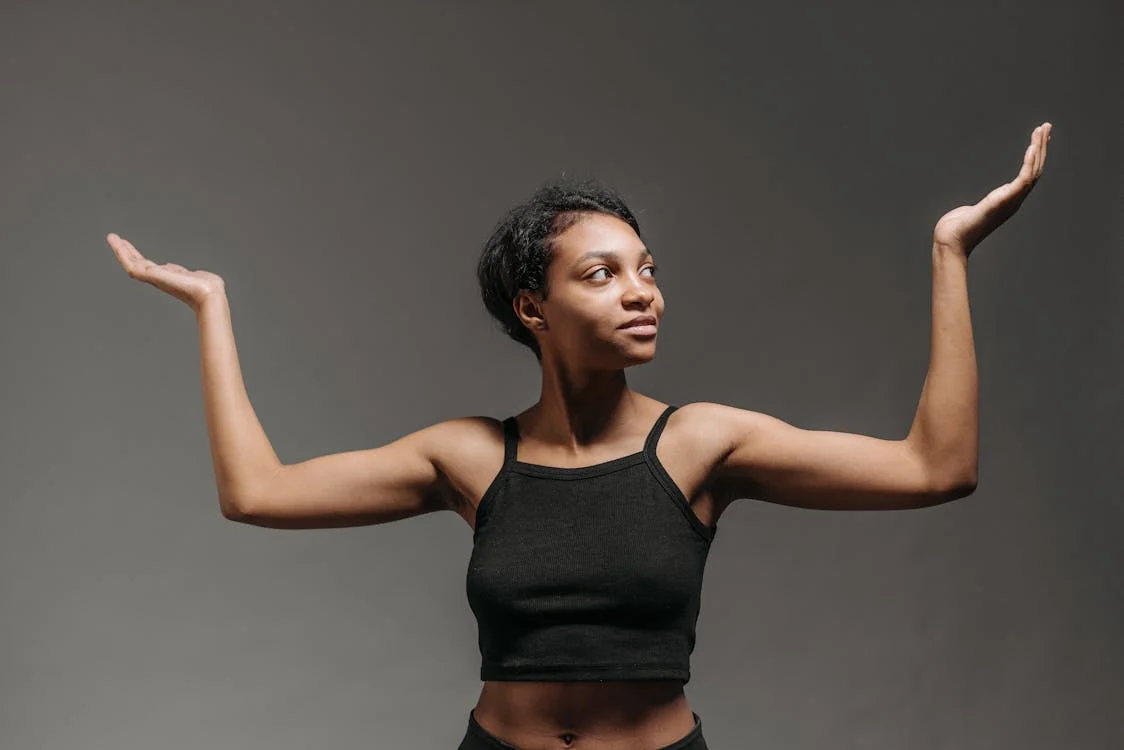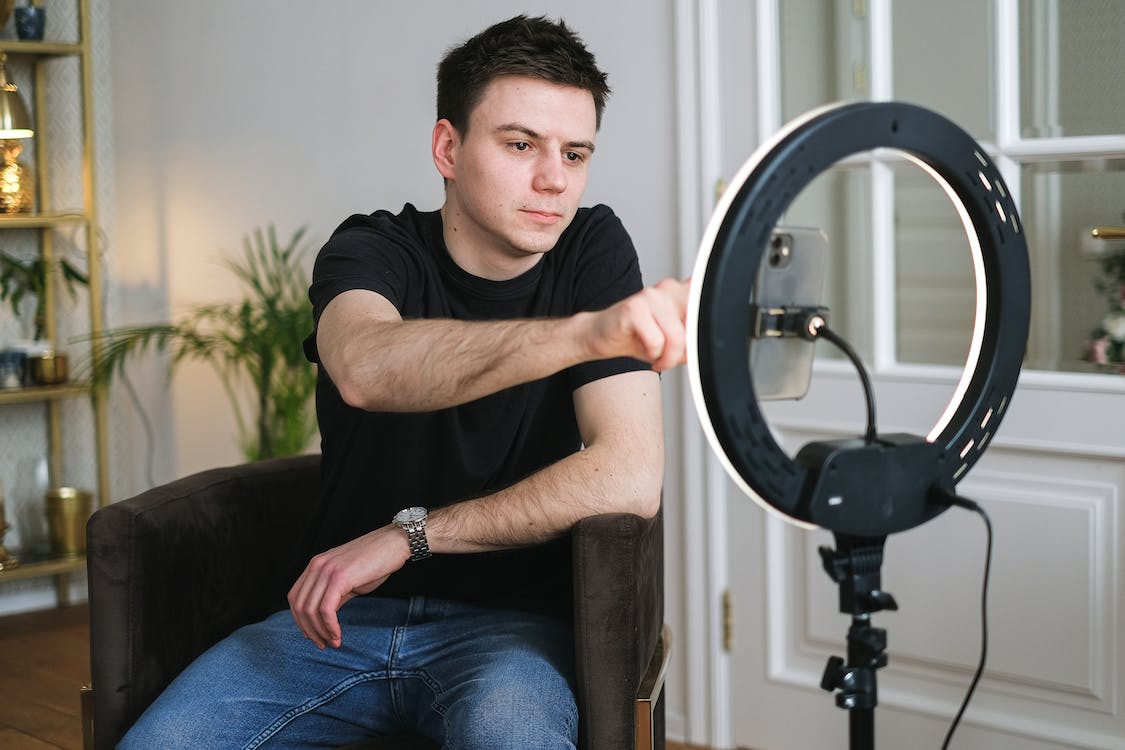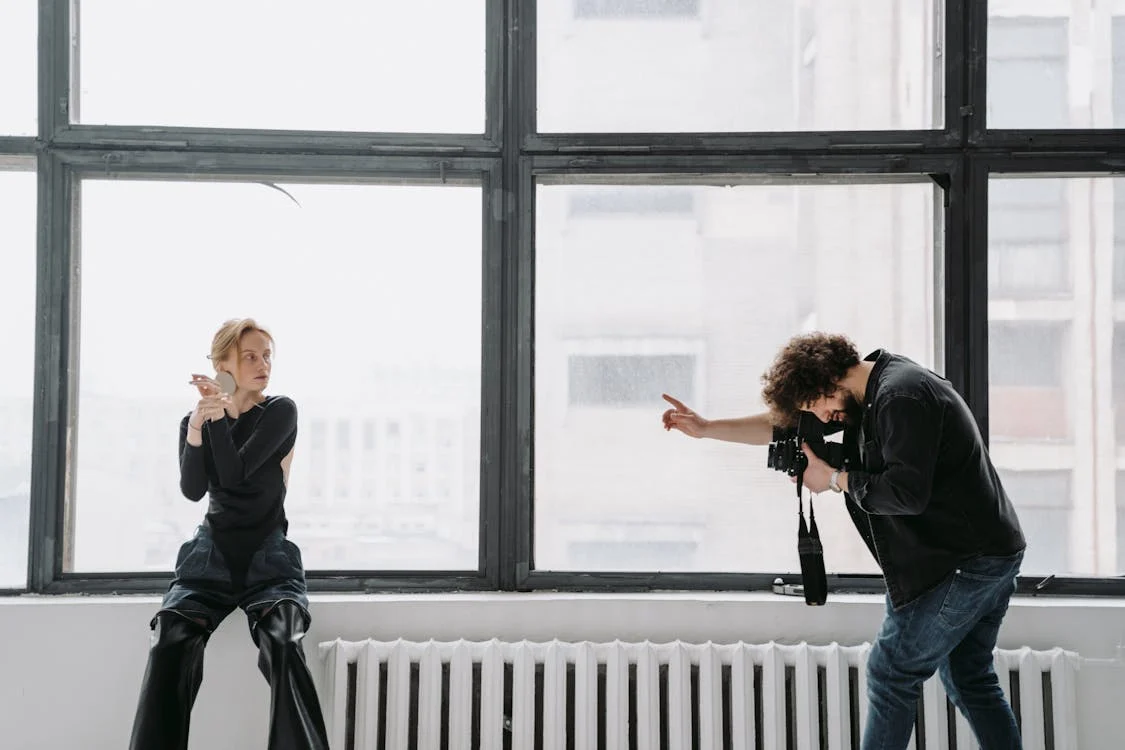Question:
Should You Wear Black in a Self-Tape?
(By Jim Webb)
 (Photo: Rocketmann Team | Pexels)
(Photo: Rocketmann Team | Pexels)
When it comes to self-taping for auditions, every detail counts—from lighting and background to how you present yourself on camera. One of the most common questions actors ask is whether they should wear black in a self-tape. While black is often seen as a safe choice, it’s not always good idea.
The Pros of Wearing Black
Neutral and Non-Distracting
One of the main reasons actors choose black for self-tapes is because it’s a neutral color that doesn’t distract from their performance. Casting directors are primarily focused on your acting abilities and how well you fit the role, so wearing a color that doesn’t draw attention away from your face can be advantageous. Black can provide a clean, professional look that keeps the focus on your performance.
Flattering on Camera
Black is also known for being universally flattering on most skin tones and body types. It can create a slimming effect and help actors feel confident in front of the camera. If you’re unsure about what to wear, black can be a safe and reliable choice that looks polished and put-together.
Works Well with Most Backgrounds
If you’re self-taping in a location where the background is light or neutral, wearing black can create a strong contrast that makes you stand out. This contrast can help ensure that you’re the focal point of the shot, especially in a well-lit environment.
The Cons of Wearing Black
 (Photo: Anna Shvets | Pexels)
(Photo: Anna Shvets | Pexels)
Potential to Blend into the Background
While black can be a good choice in some situations, it can also be problematic if your background is dark or if the lighting isn’t ideal. In poorly lit conditions or against a dark background, wearing black can cause you to blend in too much, making it harder for casting directors to see you clearly. This lack of contrast can diminish the impact of your performance and make your self-tape less effective.
Lack of Personality
Another downside to wearing black is that it can sometimes come across as too safe or generic. Depending on the character you’re auditioning for, you might want to convey more personality or show a bit of color that reflects the character’s traits. While black is versatile, it might not always be the best choice for roles that require a more vibrant or expressive look.
RELATED: Should You Wear White in a Self-Tape Audition?
Lighting Challenges
Black can also pose challenges with lighting. If the lighting isn’t well-balanced, wearing black might lead to harsh shadows or an uneven appearance on camera. This can distract from your performance and make it difficult for casting directors to assess your suitability for the role.
Tips for Choosing the Right Outfit for a Self-Tape
 (Photo: Tim Miroshnichenko | Pexels)
(Photo: Tim Miroshnichenko | Pexels)
Consider the Role
When deciding what to wear for a self-tape, think about the character you’re auditioning for and the tone of the project. If the role is serious or professional, black might be a fitting choice. However, if the character is lively, quirky, or has a distinct personality, you might want to opt for a color that better reflects those traits.
Assess Your Background
Take a good look at the background where you’ll be filming your self-tape. If it’s dark, consider wearing a lighter color to ensure you stand out. Conversely, if your background is light, black can provide a strong contrast that highlights your presence on camera.
Test Your Look on Camera
Before recording your self-tape, do a test shot to see how your outfit looks on camera. Pay attention to how the lighting interacts with the color of your clothing, and make sure you’re clearly visible. Adjust your wardrobe choice if necessary to ensure you look your best.
Keep It Simple
While it’s important to choose the right color, it’s equally important to avoid overly busy patterns or distracting accessories. The goal is to keep the focus on your performance, so opt for simple, solid colors that don’t compete with your face or movements.
Wearing black in a self-tape can be a smart choice in many situations, particularly when you want to keep the focus on your acting and maintain a professional appearance. However, it’s not a one-size-fits-all solution. The decision to wear black should be based on the specific circumstances of your self-tape, including the role you’re auditioning for, the background, and the lighting.
If you do choose to wear black, make sure it complements the overall look and feel of your self-tape, and always test it on camera to ensure you’re making the right impression.



